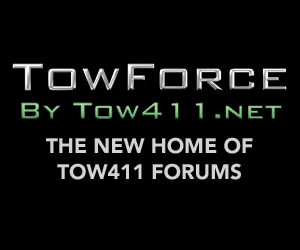By Dave Sunkenberg, VP of Network Services, Agero
Today, over 61% of Americans have a smartphone – and that percentage keeps rising. These phones are carried everywhere, especially when people are on the road.
In fact, more and more people can’t imagine being stranded without one. No wonder so many tow professionals are now using this increasingly popular form of mobile technology to enhance and grow their businesses while improving customer experiences.
Technology increasingly makes the job easier and more efficient.
Many organizations are developing new smartphone applications specifically geared towards towing and roadside assistance. These apps are created for both dispatchers and drivers, and can help your business by making it easier than ever to:
- Receive and dispatch calls
- Keep track of your fleet
- Receive real-time updates of tow driver’s location
- Take on-scene photos and upload them
- Complete a ticket
- Take payments
- Obtain signatures
Benefitting from this new technology is easier than ever.
Now you can have customer and vehicle details, contact information and turn-by-turn navigation at your fingertips.
In fact, much of the technology driving these applications is centered on GPS tracking and fleet management. Providers can improve their estimated time of arrival (ETA) simply by enabling dispatchers to access details of a fleet’s location right on their smartphones.
Companies such as Progressive Platforms and Beacon Software are already helping drivers and dispatchers better their businesses by creating a more seamless towing experience for both customer and driver with their GPS technologies.
“Location-aware technology is becoming very important,” said Todd Althouse, president of Beacon Software. He notes that it is now “as easy as pushing a button to see tow providers near a disablement call. We want to give providers all the tools they need.”
Today, nearly 40% of tow trucks have a hard-wired GPS device in them. Another 35% have drivers that carry a smartphone that could be running a dispatch application or a third-party dispatch system, such as ones offered by Progressive Platforms and Beacon Software. The remaining tow companies and their drivers are not yet connected – and will not be able to compete if they don’t upgrade their technology.
“It’s certainly an advantage to have the technology,” Althouse said. “You can route around problems and navigate your arrival on-scene. It makes for a smooth system.”
Motor clubs are also keeping up with this trend.
Many motor clubs are already creating towing apps for smartphones in order to enable their providers to enjoy the benefits of GPS fleet tracking, accepting dispatch calls, obtaining signatures and more – all from their phones.
For the motor clubs, creating these apps allows them to track and proactively manage the dispatch process. Because the apps allow for a more seamless dispatch process, tow providers are able to work better as a team, save money on fuel costs, retain more customers and grow their revenue opportunities. Plus, motor clubs benefit from more effective providers, as well as from tools that track ETAs and assist with other important factors, such as accident scene management.
“You can run a whole towing operation from your smartphone instead of sitting in an office in front of a PC,” said Mark Fensome of Progressive Platforms. “The technology makes it so much easier to help manage fleets – it’s more cost-effective and fuel-efficient.”
The bottom line is that the benefits of smartphone technology are already here, are growing, and are increasingly practical for service providers, drivers, and motor clubs. Before long, it may be impossible to compete without taking advantage of them.






